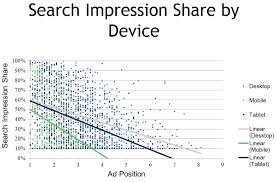-
How top PPC managers go about handling mistakes

Whenever there is a discussion on how a PPC manager should handle his/her mistakes when reporting to a boss or client, it is bound to get extremely interesting. From the answers one is apt to glean, it becomes clear that a lot of PPC managers have very little clue on this issue. Any competent service…
-
The four P’s for Successful online marketing

Marketing principles permeate into every aspect of online marketing but they’re less pronounced and little discussed. This is especially so in PPC. Having a basic understanding of these principles and knowing how they correspond to your campaigns can give you a leg up over competitors. Product comes first. In traditional marketing, product refers to the…
-
The manual on how to be the perfect PPC client

Conversations amongst PPC professionals often gravitate toward nightmare clients. The ones who called at all hours of the day, dictated what should be done in the account and when, or were never satisfied even by exemplary results. Looking through these situations, it is inevitable to consider that nobody is happy. The manager feels belittled or…